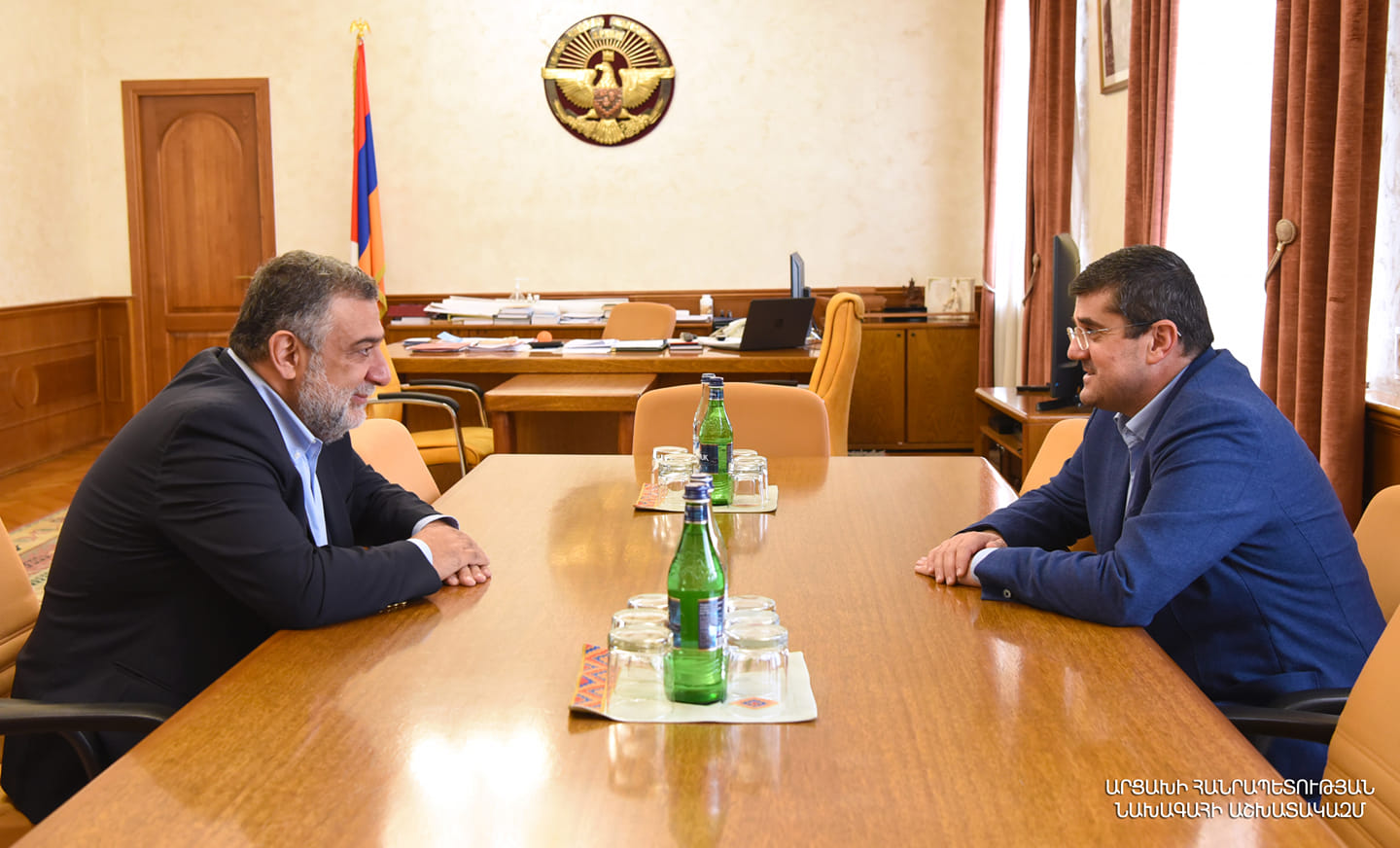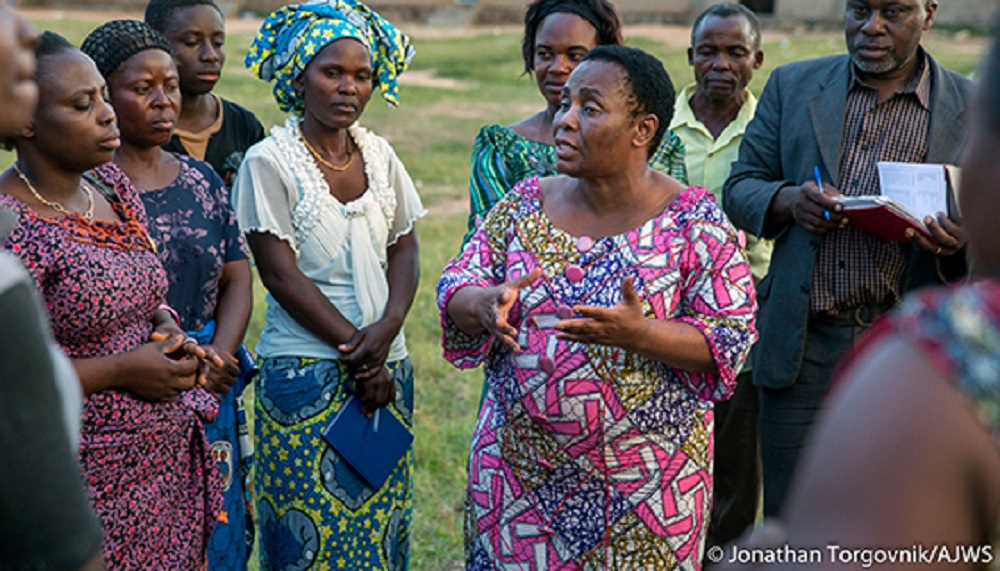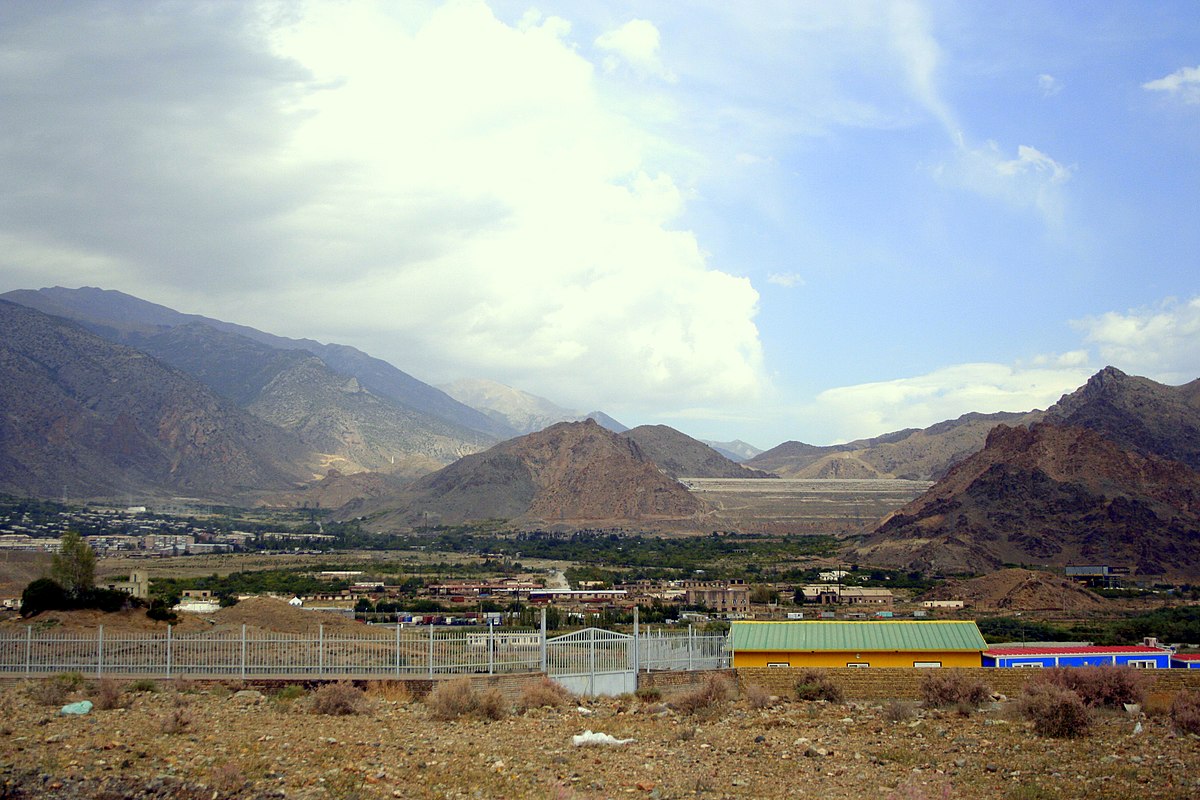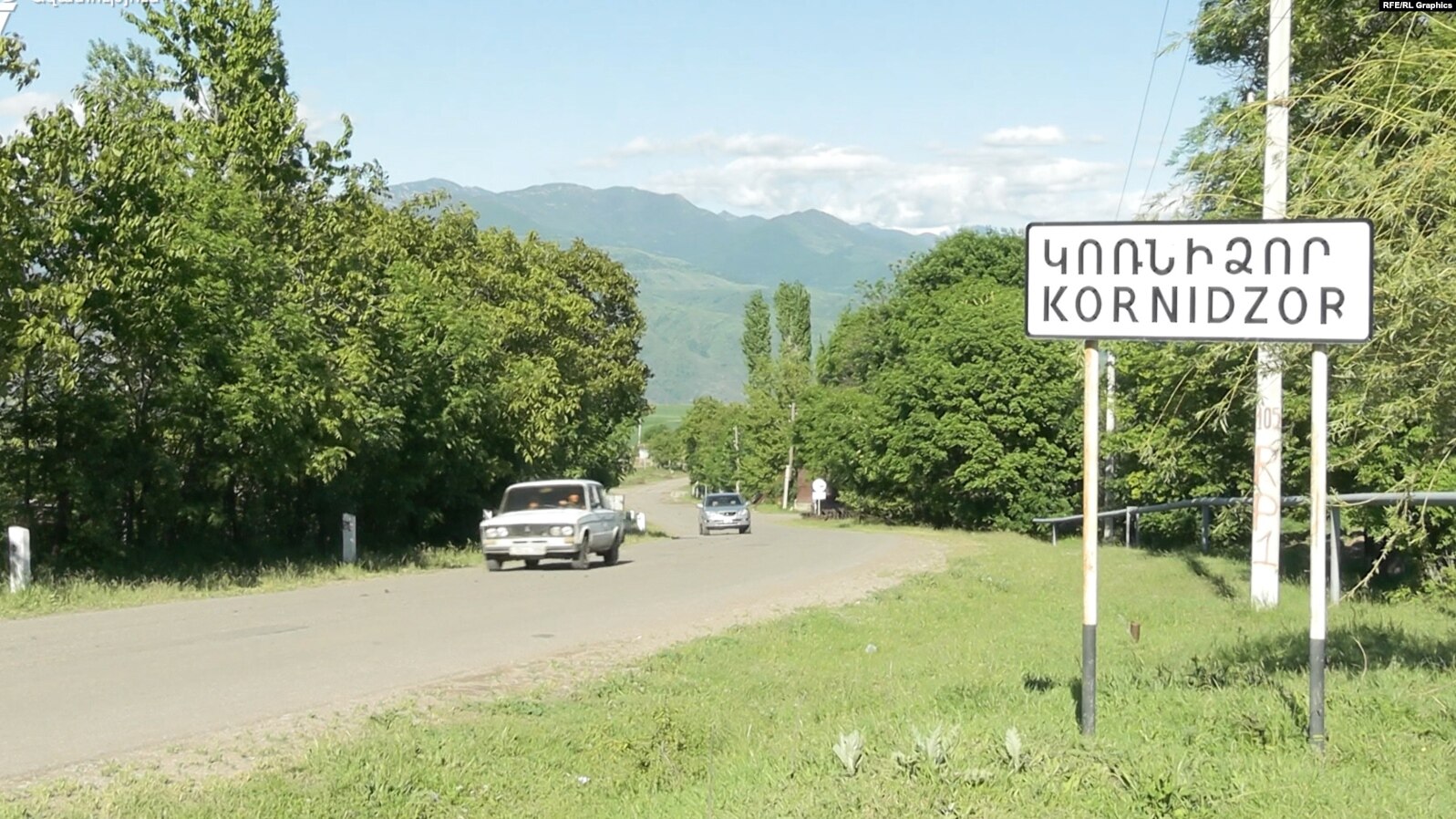“We are all soldiers in defense of the motherland” - a businessman who became a state minister
Interview with Ruben Vardanyan
Russian-Armenian businessman, investor and philanthropist Ruben Vardanyan has been appointed state minister of the unrecognized NKR. In early September he announced that he had renounced his Russian citizenship and was moving to Nagorno-Karabakh. At a press conference after the move, Ruben Vardanyan said that he would not be seeking office in NK; but a few days later in an interview with Forbes magazine, he left open that a situation could arise when he “would be forced and consider it right to accept a public position.”
Armenian political scientists then began to speculate on his next moves, perhaps even seeking the office of president should the current president resign, ofr example. They also floated the idea that Russia itself was behind his move to Nagorno-Karabakh.
Since 2011, Ruben Vardanyan has been among the richest people in Russia according to Forbes. In 2021 the businessman’s fortune was estimated at one billion dollars. He occupies 116th place in the list of the richest people in Russia.
After his appointment as state minister, the Kommersant newspaper published an interview with Ruben Vardanyan about what he plans to do in a situation that looks “not just complicated, but hopeless.”
- What can Armenians of NK expect in Azerbaijan? Azerbaijani scholar’s forecast
- “Stepanakert should prepare for negotiations with Baku” – comment from Yerevan
- Geopolitical project: How Armenia lost the war and wound up between world powers
Leaving your land means the end of history
“Every nation has roots. These roots determine the basis of not only heritage, but also the future of the tree. If the roots are being destroyed, the tree will not survive and will not be able to bear fruit. In this sense, Artsakh is a unique place not only in terms of nature and history. This is really the cradle of not just Armenian but of Christian civilization. One of the few places where Armenians have lived for thousands of years.
Unfortunately, most of our other places have been lost, in western Armenia [present-day Turkey], for example. It is very difficult to be refugees all the time, to live in a situation where your roots, your graves are destroyed.
The loss of Artsakh is not just a loss of some territory. It’s a matter of losing your foundations.
For five thousand years the Armenian nation has existed in the Transcaucasus on the Armenian Highlands. We are one of the few nations that lives on its own land. Leaving our land means the end of history.
We see how the world in these two years is heading towards a third world war. We are on the verge of tectonic changes.
I think it’s just a question of duty. And making this decision, I realized that if not now, then when.
Position doesn’t matter
“In the conditions in which Artsakh is now, the position does not matter.
We are all soldiers who must stand in defense of our homeland. My move was based on that.
My main task, including as a man who unexpectedly becomes a government official, is to convince people that we have an emergency and a very dangerous one. To do everything so that people can come together and be able to feel that they are a single force, that together they can change something.
Now I don’t want to tell [my] program of action step by step, because first, for the first two months, like a sponge I am absorbing the tasks and problems that exist in our region. Second, it is very important that these decisions are not hasty, but very balanced. It is very important not to do harm.
The main task is to make sure that a person living in Artsakh feels that he is protected, has the opportunity to give his children a good education, has normal medical care, work and the opportunity to realize his aspirations.
The good news is that the population here is not very large, and some things can be done quickly, including through new technological opportunities.
We are faced with the task of quickly forming a team of people from Artsakh and those who came from outside, who together will be able to break the mood that everything is very difficult here and there are no prospects.”
Dangerous all over the world
“I am convinced that the people of Artsakh, and they have been proving this for centuries, are inflexible people. You will walk around the city and see a huge number of children, a huge number of young people who do not leave. After such a hard war, the loss of part of the regions where Armenians have always lived, the majority of people remained, they live and work here.
The whole world is dangerous right now. Where is it calm? The alarm sounds everywhere: the danger is very great all over the world. And for the people of Artsakh, this is a very good example that it is better to be at home, on their land and to fight for their fatherland, than to be an immigrant somewhere.
Security is not only a military threat, it is the security of the inner world, security in society, security in terms of many other processes: food, technology, and so on.
I am convinced that despite the very difficult situation after 2020, the people of Artsakh have great will and desire to continue moving forward.”
Follow us – Twitter | Facebook | Instagram
The ability to connect unconnected things
“It seems to me that one of the biggest challenges facing any society is maintaining a balance between tradition and new technology. New technology has changed all of our lives very suddenly.
Learning the model of coexistence with neighbors is also an important task, because the formula that I proposed – to live side by side, but not together – means that we understand and accept that we are in the neighborhood with people with whom we have a very complex, difficult relationship.
But we must find in ourselves both the strength and the will to ensure that, while maintaining the accumulated very serious negativity and the danger that comes from a neighbor, learn to build relations with a neighbor so that he understands that it is more profitable for him, it is more correct to coexist, and not try to destroy.”
NK must participate in the negotiation process
“We all need to understand that when we talk about the fate of Artsakh, we must rely on the opinion and decision of the Artsakh people. In 1988, the process of expressing the will of the people began, people said that they see their place in the Soviet space in a different way. It seems to me that there is only one question — the future of Artsakh, the future of the people living on this land, must be determined, decided with their participation. In this sense, any negotiations that are currently underway cannot take place without Artsakh.
Negotiations without NK is one of those things that I find flatly unacceptable. The leadership of the Republic of Armenia has no mandate for Artsakh to decide how they will live.
The international community must understand: the humanitarian catastrophe that can happen here — responsibility for it will lie with everyone.
The presence of Russian peacekeepers here is a very important element of deterrence. And the preservation of trilateral relations between those who guarantee security, the people who live on Artsakh land, and our neighbor is the only possible model of negotiations.
Therefore the Republic of Armenia should conduct its own negotiations on its relations with Azerbaijan, on demarcation, delimitation, corridors, but the fate of Artsakh is not to be decided there. The fate of Artsakh is to be decided here together with us.
Unfortunately, the negotiations [Pashinyan and Aliyev mediated by Putin] in Sochi cannot be considered successful. The final text does not mention the issue of the status of Nagorno-Karabakh. It is not said that the Russian peacekeepers will continue to ensure peace and remain in Artsakh, deterring the parties from using or threatening to use force until a political solution is found. What is missing is a statement that representatives of Nagorno-Karabakh itself are involved in the negotiations to resolve the issue of the status of Nagorno-Karabakh through international mediation.
What appears in the documents does not suit me, Artsakh and its people in any way. I hope the negotiations in the Sochi format will continue and yield the desired result. We need to show with all our actions that Artsakh can and should be reckoned with.“
The right of nations to self-determination in contradiction with territorial integrity
“My formula is to live side by side, but not together. I hope that prudence will prevail in the leadership of Azerbaijan, because they also do not need new victims. And in general it will not be easy to explain to the world if they [Azerbaijanis] try to destroy the population living here by military means, which says that we are not part of Azerbaijan, have never been part of Azerbaijan.
There are indeed rigid two positions that are incompatible. The right of nations to self-determination is in conflict with territorial integrity.
It must be said that the territorial integrity that Azerbaijan is discussing also raises many questions, because by the time the Soviet Union collapsed, the Nagorno-Karabakh Autonomous Region was not part of Azerbaijan de jure. It is necessary to discuss everything, to argue, but it seems to me that this is all pointless if there is no will from both sides.
Despite the fact that we have diametrically opposed positions, we must find a balance that will allow both sides to maintain peace.
Better a bad peace than a good war. I am deeply convinced that for the Azerbaijani people, who also have many difficulties, many problems in the economy, in the social sphere, and in the development of their cities and villages, another round of war, more pointless dead, would be unwelcome.
I have never been in any state apparatus, although the main function of an investment banker is a negotiator. My experience in business shows that I can negotiate with very different people.
And I hope that this experience will be applicable, because on my part there is a will and a desire to do this with maximum efficiency. When there is a noble and ambitious goal, and when there is an inner readiness to give 100%, everything will work out.”
Responsibility for the future
“Reducing the degree of rejection, the inability to communicate with each other is a long process that requires a lot of effort. I think it’s decades, at least.
Decades that will require us not only to leave everything as it is, but to make efforts to somehow change the situation for the better.
This status [of Nagorno-Karabakh] is determined by the fact that, even if it is not fully defined in accordance with international law, maintaining the status quo (which means that Artsakh will not be part of Azerbaijan in the form in which the Azerbaijani leadership sees it) must be clearly understood and accepted. Accepted by both the leadership of Azerbaijan and the Azerbaijani people.
An attempt to destroy the Artsakh people, an attempt to solve this by military means will cost Azerbaijan dearly. From the point of view of direct victims, from the point of view of losses in the international sphere, and from the point of view that all this is a boomerang.
The more you do these performances, the more you get back. I am not trying to be an alarmist. This is history. You just need to read the story and understand that this all just doesn’t pass without a trace for anyone.
Life is something to be cherished. It is necessary to treat what you are doing from the point of view of not only today, but also the future. The most important task of the leaders of any country is to be responsible not only for today, but also for how generations will live in the future.”
Interview with Ruben Vardanyan























